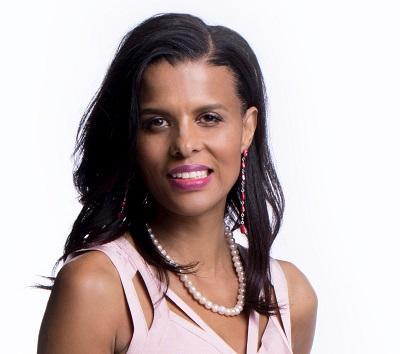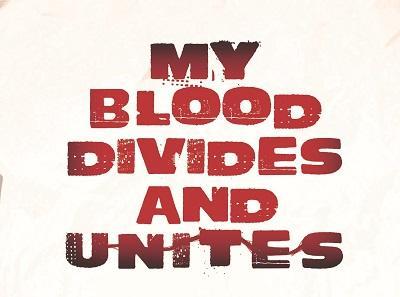Nobody is the Other
-
A book by Witsie Jesmane Boggenpoel (BCom 1995, BAcc 1996)
My Blood Divides and Unites
by Jesmane Boggenpoel
Released internationally on 8 January 2019
South Africa needs a second phase of truth and reconciliation. This is the view of Jesmane Boggenpoel, a chartered accountant by training who has recently published a book about the benefits of coming to terms with apparently conflicting identities and histories.
Somehow she approaches the subject in a gentle way that sees divisions and pain and power struggles but looks beyond them to freedom and peace – personal or interpersonal.

“I am a proud and complete mixed-race woman whose genes represent a panoply of colours, of hues and shades, pastels and psychedelics, blended together to produce the beautiful mosaic of humanity that is me,” she writes in the introduction to My Blood Divides and Unites. But this pride took time to develop.
Brought up in the tough neighbourhood of Westbury in Johannesburg, which wasn’t a strong enabling environment for someone to stand out from the crowd academically, she nevertheless had the family support that helped her onto a path towards success.
Arriving at Wits, she was initially disappointed to find relatively few fellow Coloured students, but she made friends with all kinds of people. “I broadened my horizons but did not develop a keener sense of what it meant to be Coloured and felt even more cut off from my roots.”
A successful business career unfolded for Boggenpoel, including a Master’s degree from Harvard University’s JFK School of Government, being honoured as a Young Global Leader of the World Economic Forum and subsequently working for the World Economic Forum in Switzerland.
In her mid-30s, while she was building her career, her curiosity about her mixed-race identity started to awaken. In 2016 she took a DNA test and was surprised – and emotionally moved – by the results. What she learned about herself as a mixture of people from far-flung parts of the world and opposite sides of conflicts allowed her to reframe her narrative. She was able to “kick aside the apartheid-imposed tale of nothingness and shame, and to replace it with a rich heritage. … Wherever I travel, whoever I meet, I feel a kinship. No-one is the ‘other’ for me…”
In her book she writes: “I came to realise that being of mixed race meant that there was much beauty and value in my blood and in my past, an infinite variety of people and cultures, languages and customs, heroes and villains, oppressors and people who have been oppressed. I realised that my blood told the story of my past, of my nation’s past, and in many respects of humanity’s past. I discovered that in my blood was the means to finally and truly understand who I was … and to draw tremendous hope and sustenance from doing so.”
She tackled the apparent contradictions that she embodied, and found peace.
“The issues I grappled with are universal, which is why I believe the same process can be equally helpful to individuals, groups and nations as they struggle to build inclusive, harmonious and prosperous futures for themselves and their constituent parts.”
She calls on people to listen to each other and try to understand the pain that drives others to anger and violence. She further calls on corporates to set aside budgets to help staff deal with residual pain from the trauma of apartheid or other racial wounds.
Ignoring or covering up historical experiences like slavery in South Africa has contributed to a lack of empathy for the Coloured community in the struggle with gangs and drugs, she notes.
“Lack of reconciliation is a festering sore that hampers the social, economic, and other advances needed to propel South Africa into a prosperous, harmonious future.”

At the launch of her book, Boggenpoel explained that she wanted to inspire others from disadvantaged communities. She also wanted readers from other countries to be able to understand the South African concepts and context that she discusses. And she wanted her story to play a global role in uniting and healing people.
Asked by fellow Witsie author Fred Khumalo at the launch about her take on the notion of Coloured identity, she replied that she wouldn’t presume to speak for all Coloured people, and that everyone should be given the freedom to work out their own identity. As a student at Wits in the early 1990s, she identified more with her Black roots, but for the purpose of expressing her unique upbringing in the book, she used the term Coloured.
The book also includes international perspectives which are so often lacking from South African discussions. It records interviews with people from Mexico, Rwanda, Nepal and other countries.
South Africa is still healing from apartheid, Boggenpoel argues, and its pain manifests as anger, often with a racial dimension. Another root cause of conflict, she suggests, is “fear of lack” (i.e. a fear of not having).
“We need to be intentional about creating an environment in which to build social capital – a second phase of truth and reconciliation. We should focus on forming an emotional connection with each other through the telling of stories.”
Reframing of stories can be applied to any group that feels marginalised or threatened, she says, and can empower them to move on from places of tension and hopelessness.
For more information: https://myblooddividesandunites.com/


